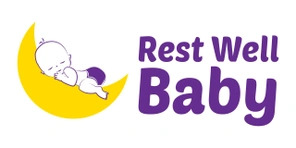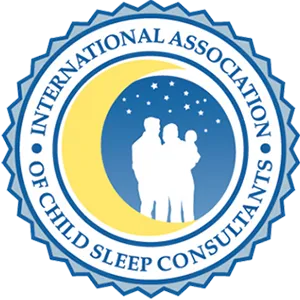Blog

Is Your Child Overtired?
Is Your Child Overtired? 5 Subtle Signs Parents Often Miss
As a pediatric sleep coach, one of the most common misconceptions I encounter from exhausted parents is the belief that a tired child will simply fall asleep easily. In reality, the opposite is often true! An overtired child can be a whirlwind of energy, meltdowns, and sleep resistance, making bedtime a battleground rather than a peaceful transition.
It’s a counterintuitive concept: the more tired your child is, the harder it can be for them to settle down and sleep. This is because overtiredness triggers a release of stimulating hormones like cortisol and adrenaline, which act as natural "uppers." While you might be looking for obvious yawns and drooping eyelids, overtiredness often manifests in more subtle, often confusing, ways.
If you’re struggling with bedtime battles, frequent night wakings, or short naps, your child might be overtired. Here are five subtle signs parents often miss:
1. The “Second Wind” of Energy
You've just finished dinner, and instead of winding down, your child suddenly transforms into a miniature tornado, running laps, giggling uncontrollably, or becoming extra silly. This burst of manic energy, often occurring right before bedtime, isn't a sign they're not tired; it's a classic hallmark of overtiredness. Their body is fighting sleep, and that adrenaline rush is fueling the unexpected vigor.
2. Heightened Emotional Reactivity
Does your normally easygoing toddler suddenly have a meltdown over a dropped toy? Is your baby inconsolable after a minor diaper change? Overtired children have a significantly reduced ability to regulate their emotions. They might cry more easily, have more intense tantrums, or become frustrated by small things that wouldn't normally bother them. This isn't naughtiness; it's a desperate cry from an exhausted nervous system.
3. Clumsiness and Lack of Coordination
You might notice your child tripping more often, bumping into furniture, or struggling with fine motor tasks they usually master, like stacking blocks or using utensils. Sleep deprivation impacts coordination and balance. Their brain is simply too tired to process movements efficiently, leading to a noticeable increase in clumsiness.
4. Difficulty Focusing and Short Attention Span
If your child is usually captivated by storytime but now fidgets incessantly, stares blankly, or keeps asking "What?" even after you've explained something, overtiredness could be the culprit. A tired brain struggles with concentration and processing information. They might seem "zoned out" or easily distracted, unable to engage in activities they normally enjoy.
5. Increased Appetite (or Lack Thereof)
This one can be tricky. Some overtired children might suddenly seem hungrier than usual, often due to their body craving quick energy from carbohydrates. Others, however, might lose their appetite completely, becoming picky or refusing food they typically love. Sleep profoundly impacts appetite-regulating hormones, leading to these confusing fluctuations.
The Takeaway
Recognizing these subtle signs is the first step toward better sleep for your entire family. If you suspect your child is overtired, focus on moving their bedtime earlier, ensuring consistent nap schedules, and creating a calm, predictable pre-sleep routine. Addressing overtiredness can often be the missing puzzle piece to unlocking more peaceful bedtimes and longer, more restorative sleep for your little one – and for you!
If you have a baby, toddler or young child who is facing sleep challenges, please feel free to reach out to book your 30 minute Sweet Dreams Starter call to learn how I can help your family get the gift of sleep.
Yours in sleep,
Tracie / Rest Well Baby
www.restwellbaby.com
Tracie Kesatie is a Certified Gentle Sleep Coach dedicated to helping families with little ones 0-10 years of age achieve a restful night's sleep.
Disclaimer: This article provides general information and is not intended as medical advice. Always consult with your pediatrician for any concerns about your child's health.
Blog





